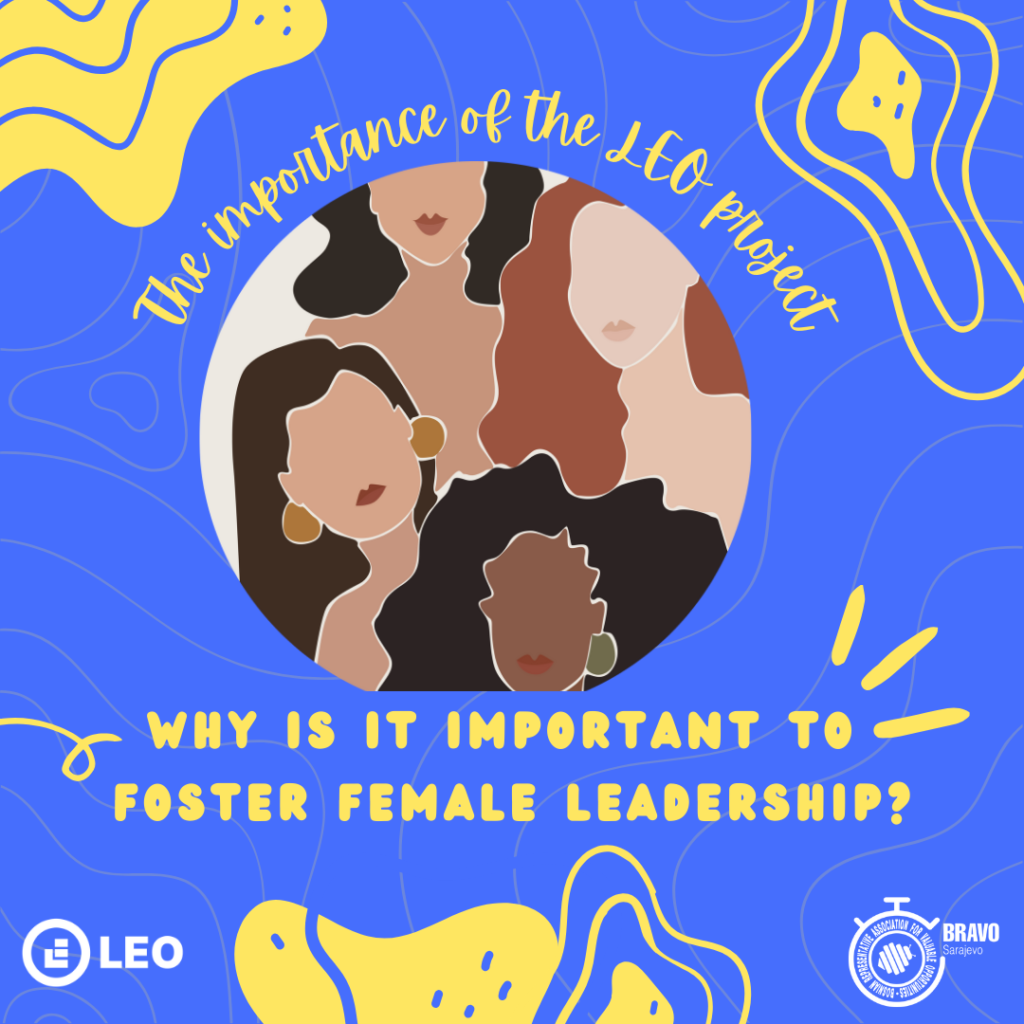
In countries like BiH, where more than 50% of the total population are women, they still don’t have it easy. Such things don’t end with BiH. Despite all feminist attempts, women all around the globe are still fighting for their social status. They have to earn the respect of others around them to be accepted as a worthy member of society. Globally, women are underrepresented in politics, have less access to basic and higher education, are more likely to face health and safety risks, and have fewer chances for economic engagement than men.
On account of this, project “LEO” (Leadership is for Everyone) was born in the early spring of 2022 out of a desire to achieve gender equity, which includes boosting women’s leadership and involving men in the process.
This project brought together four organizations from Albania, Italy, Lithuania, and Bosnia and Herzegovina, all aiming to overcome key obstacles to gender equality. Throughout the two years, the LEO project has come a long way as it has contributed to building a more inclusive society.
The LEO project provided a wide range of activities for young people to learn, network, and acquire professional experience, such as networking events and workshops that took place in different cities. They discussed issues related to femicide and violence, the challenges faced by women within marginalized communities, the role of women in STEM and IT fields, the significance of mental well-being, and the empowerment that comes from breaking down social boundaries in the workplace through activism.
Additionally, there were career fairs where young people could interact with professionals and make their way into the workforce, as well as an internship program. The internship program has been conducted with two local companies: the Foundation of Entrepreneurs in BiH and the magazine “A&S Adria. Both of these companies have been open to collaboration and have shown a willingness to cooperate with the BRAVO team by opening five positions specifically for young female interns. Over the course of the two-month internship, the interns improved their professional abilities, obtained real-world industrial experience, and built a valuable network of connections.
There is little doubt that the LEO project, which involved over 100 individuals in Bosnia and Herzegovina, had a significant impact on our community. Our goal is for this project to serve as a reminder which will inspire and encourage young people going forward. We hope that this marks the beginning of an entirely fresh phase for female leadership because by making changes, we will be creating new opportunities for a brighter future.
More about LEO project:
Women’s empowerment is a prerequisite for gender equality, according to the CoE Gender Equality Strategy 2018-2023. Even when girls demonstrate leadership abilities or hold positions of power, the world fails to make them feel good because the mind model that we have is gendered “male.” As a result, when girls adopt such a model, claiming that leaders are bold and make difficult decisions, they may experience cognitive Men outnumber women in leadership positions in every sector of the world, including business, nonprofits, government, education, medicine, the military, and religion This gender gap, often referred to with the metaphor “glass ceiling”, represents one of the most critical challenges to achieve gender equity and allow equitable working opportunities to all genders
The project aims to enhance women’s leadership, develop NFE resources for youth workers and young people, promote men’s involvement in women’s empowerment, and strengthen the synergies between youth work and the labor market.
And specific call’s thematic areas:
- inclusion of young people with fewer opportunities;
- empowerment/engagement / employability of young people;
- anti-discrimination and gender equality;
LEO project efficiently contributes to the global effort to achieve gender equity and meets the EU Gender Equality Strategy Key Actions 2020-2025 (challenging gender stereotypes, boosting women’s economic empowerment, and ensuring equal opportunities in the labor market). Moreover, the project addresses many of the general and specific call’s objectives, ensuring its quality and relevance.
